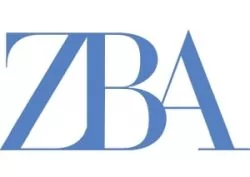Introduction:
In a recent decision1, the National Company Law Appellate Tribunal ("NCLAT") has addressed crucial legal questions surrounding the admission of a Corporate Insolvency Resolution Process ("CIRP") under Section 9 of the Insolvency and Bankruptcy Code, 2016 ("IBC"). The case involves a Barter Agreement between M/s. AG8 Ventures Ltd. ("CD") and M/s D. B. Corp Ltd. ("OC"), raising issues related to the nature of the transaction, the locus of regulatory authorities, and the validity of the insolvency proceedings. NCLAT emphasized that CIRP cannot be initiated under Section 9 of IBC solely on the basis of barter agreements or transactions.
Facts of the Case:
CD, a registered company developing various real estate projects in Madhya Pradesh, had obtained registration of 11 real estate projects from Real Estate Regulation Authority ("RERA"). It allotted various residential/commercial units to several allottees from the year 2010 onwards. RERA received complaints from CD's allottees, leading to orders directing refunds and investigations into fund diversion by CD.
During the period from 2010 to 2019, CD entered into various agreements titled as Barter Agreements with OC for an extensive advertising campaign. OC is engaged in business of publishing of various newspapers, periodicals and other literary and publications in print and non-print media. The barter agreements comprised both a cash component and a barter component. The cash component was to be paid and the barter component was to be utilized in form of allotment of units which were required to be transferred in favour of OC.
Subsequently, OC filed an application under Section 9 of IBC, alleging default solely based on the barter component of the barter agreement which was admitted by NCLT, Indore bench on 05 August 2022 ("CIRP Admission order"). RERA and Aquacity Consumer and Societies Welfare Society ("Homebuyers' Association") preferred an appeal against the CIRP Admission order.
Key Issues:
NCLAT's decision centered on several critical issues, with a primary emphasis on the exclusion of barter agreements as grounds for initiating CIRP under Section 9 of the IBC:
- Locus of RERA to Challenge CIRP Admission Order: NCLAT scrutinized whether RERA, as a statutory authority, had legitimate standing to file an appeal against the CIRP admission order. It concluded that RERA, having taken actions against CD before the CIRP Admission Order, qualified as an aggrieved party with a valid interest in the insolvency proceedings. The judgment made a clear distinction from prior cases2 and affirmed RERA's locus in challenging the order.
- Locus of Homebuyers' Association: Homebuyers' Association filed complaints with the National Consumer Disputes Redressal Commission ("NCDRC"), alleging funds mismanagement by CD. Prior to the CIRP Admission Order, orders were passed by NCDRC against CD for refunding the amount with interest, but CD appealed to the Supreme Court against the interest calculation. Meanwhile, CIRP Admission Order was passed on the application filed by OC. The Homebuyers' Association, asserting representation of its members' interests, contested the CIRP admission order. NCLAT affirmed that the society possessed the necessary locus to file an appeal under Section 61 of the IBC, recognizing its status as an aggrieved party.
III. Exclusion of Barter Transactions as Operational Debt: The central focus of the decision was on whether the barter agreement could be deemed operational debt under the IBC. NCLAT meticulously analyzed the definition of "claim" under Section 3(6) of the IBC, emphasizing that operational debt necessitates a right to payment. Relying on the Supreme Court decision in Jaypee Kensington Boulevard Apartments Welfare Association and Ors. Vs. NBCC (India) Limited & Ors.3, the judgment underscored that payment, in the IBC context, pertains solely to monetary transactions and not equivalents like barter.
Decision and Conclusion:
NCLAT firmly established that CIRP cannot be initiated under Section 9 of the IBC solely based on barter agreements or transactions. It highlighted the misalignment of such proceedings with the IBC's framework and deemed NCLT's admission order unsustainable. This decision sets a clear precedent, delineating the limitations on initiating CIRP under Section 9 of the IBC in the context of barter agreements, providing clarity on the legal landscape for similar cases which are filed in collusion with the corporate debtors to exploit the interim moratorium, evading obligations that may be imposed by regulatory authorities like RERA.
Footnotes
1. Real Estate Regulatory Authority v. D.B. Corp Ltd. & Anr. [Order dated 8 December 2023 in Company Appeal (AT) (Insolvency) No.1172-1173 of 2022].
2. Securities & Exchange Board of India Vs. Rajesh Sureshchandra Sheth & Ors. [Company Appeal (AT) Ins. No. 1194 of 2022]; Insolvency and Bankruptcy Board of India Vs. GTL Infrastructure & Ors. [Company Appeal (AT) Ins. No. 103 of 2023].
3. (2022) 1 SCC 401.
The above is a generic analysis and should not be regarded as a substitute for specific advice based on the facts of a client's objectives and specific commercial agreements reached. Please do reach out to us at mail@zba.co.in for any queries.


